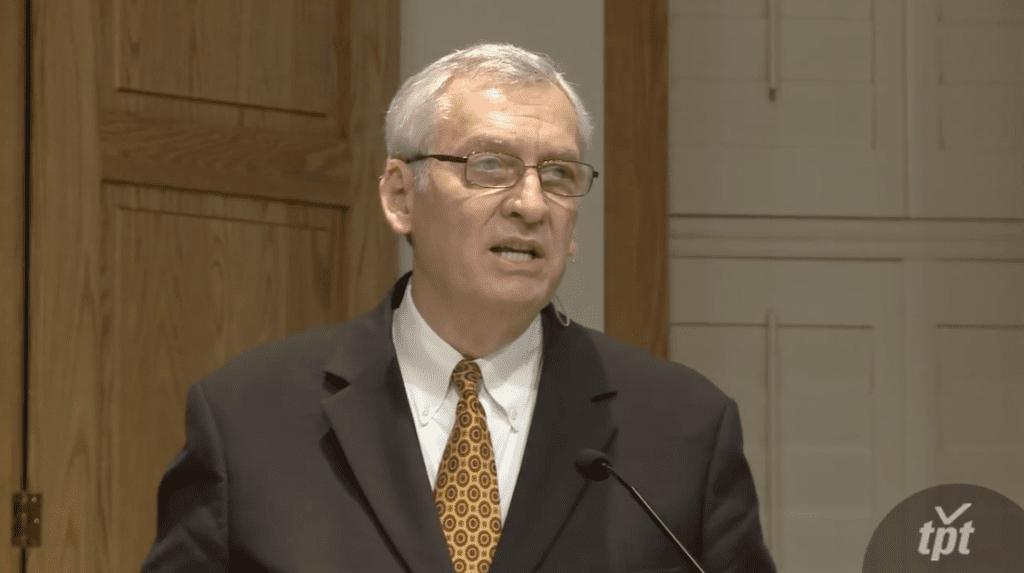BY BETH STONE BURNER DECEMBER 28, 2019
Leith Anderson, the current head of the National Association of Evangelicals, is one of the few prominent evangelical pastors who has stayed relatively silent on all things political. Given the number of times we’ve heard from the likes of Franklin Graham and Robert Jeffress about how Donald Trump is the next best thing to the second coming of Christ — at least when they’re not confusing the two — a non-political evangelical may seem like a breath of fresh air.

But an interview with Emma Green at The Atlantic reveals, albeit not directly, that opting out of politics is not only next to impossible when you’re a Christian but also woefully naïve.
For instance, Green notes that in recent days, after the viral Christianity Today editorial against Trump came out, Anderson attempted to avoid the subject entirely, saying, “Evangelicals may all share the same faith… but we don’t all share the same politics.”
That statement begs for more clarity, though, which Anderson does not give. How many white evangelicals would be treated as respected advocates for the Gospel if they didn’t identify as Republican, anti-abortion, and anti-LGBT, among other things? The unholy matrimony between evangelicals and the GOP was not mentioned at all.
Anderson attempted to stay “above the fray,” but when you’re hesitant to speak out against obvious cruelty and corruption, it’s clear which side you’re on. In a quotation that’s (falsely) attributed to Christian hero Dietrich Bonhoeffer, “Silence in the face of evil is itself evil.”
Not everyone is comfortable discussing politics, so this isn’t an indictment of reluctance. But few people have the opportunity to speak out on a national stage, as a representative for one of the most powerful religious blocs in the country. Anderson has the power to change at least a few minds among the 81% of white evangelicals who voted for Trump. He could speak about how immigration is not just a political issue, but a biblical one. He could preach about the importance of welcoming refugees without even mentioning Trump. (There’s no shortage of Bible verses to quote.)
Instead, he chose silence. Asked whether his approach (or non-approach, rather) is akin to “sticking his head in the sand,” Anderson replied,
No, I think it’s saying that who we are and what we believe is more important than the distractions. Most people are concerned about their children and their mortgage and their health. They care about politics, but to me, the Church and the Gospel and our relationship with God and raising your children — that’s most of your life. Everything I’m saying is coming back to politics for you, and I’m keenly aware of that. But I don’t want that to be what we’re about.
Too bad. That’s what white evangelicals are about whether the head of the largest evangelical group in the country gets it or not. He’s tied to Trump because too many white evangelicals either love him, accept him for the fringe benefits (like judges), or don’t care enough to speak out against him.
Anderson can choose to be a coward or just plain ignorant. But there’s no third option. There’s certainly nothing to respect about someone who seriously thinks politics is a distraction when so many lives are being ruined because of what Republicans are doing.
Just think about the sheer chutzpah it takes to say politics is a mere distraction.
Everything is political, now more than ever. The personal is political. The church is, and must be, to an extent, political.
Anderson doesn’t have to (and shouldn’t) tell people who to vote for. But he’s choosing to remain silent when he has been given a platform. Anderson is retiring at the end of the year. It doesn’t matter. He gave up his voice long ago.
(Screenshot via YouTube)
